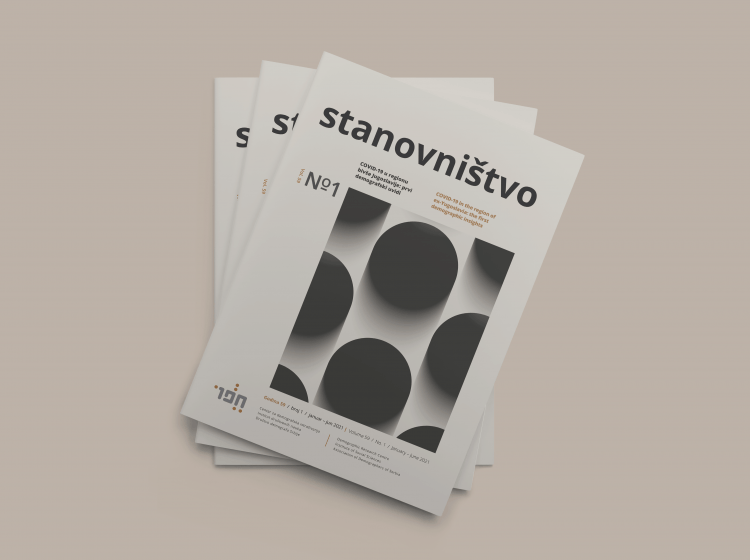Guest editors:
Suzana Ignjatović (Institute of Social Sciences, Belgrade)
Dragan Stanojević (University of Belgrade, Faculty of Philosophy, Department of Sociology)
Modern life-course research is associated with quantitative approaches and advanced statistical techniques. However, there is a long history of qualitative, life history methods in sociology (the Chicago School). Also, anthropology explores rituals and rites of passage over the life course using ethnographic methods. If we understand the life-course as a “generic term”, beyond the conceptual differences (life cycle, life history, and life), a life-course perspective aims to disentangle the temporality and dynamics of bio-psycho-social life.
Life-course research and demography are interrelated fields. A life-course perspective provides an in-depth understanding of demographic patterns (nuptiality, migration, educational structure). For example, family transitions to adulthood used to be more standardized over the life course. Now we can see more flexible and individualized paths. Family transitions (childbearing or marriage) have changed. Fertility behaviour over the life course depend on the previous life history and biological limits, but individual paths have increasingly become more flexible thanks to reproductive technologies. Also, educational structure of the population can be explained by individual educational trajectories throughout life. Finally, a life-course approach provides a valuable insight into the conceptual and methodological issues of demographic analysis based on age groups and cohorts.
We invite authors from demography, sociology, anthropology, psychology, geography, economics, and other fields interested in the life course. The Thematic Issue promotes a broad conceptual and methodological debate, beyond the quantitative versus qualitative division. The Thematic Issue will accept theoretical articles and empirical research articles based on longitudinal, comparative, and ethnographic research.
The topics of interest to the Thematic Issue
- Conceptual and methodological debate on qualitative and quantitative approaches to the life course; critical reappraisal of concepts and theories: age markers and life stages; cyclic and linear temporality; transitions and key events; demographic notions of birth and death as markers of the life course; age groups and cohorts in demography.
- Social norms of the life course as defined in ideologies, religion, science: when is it too early, and when is it too late for …? What makes an “appropriate” life course (the timing and sequencing of events)? Is it acceptable to have a child before marriage, is it acceptable to be employed after the age of 65? The ideology of “lifelong learning” in education and other normative concepts.
- Norms and the “real” life course: between the ideal and actual life course patterns of family, education, work, housing transitions.
- Individual perceptions of the life course and reflexivity: path-dependency and decisions over the life course; subjective evaluation of life (life satisfaction over the life course).
- Cultural patterns of the life course (rites of passage, cultural representations of youth and old age, etc.).
- Ongoing transformations of the life course: transitions (to adulthood, to old age) in different domains (family, education, work, housing); differences across social groups and categories (gender differences, urban/rural differences, migration, education); gender-based issues of the life course (family and work trajectories, women in certain professions); alternative life-course paths today (celibacy, childlessness, long-term housing, and financial dependency).
- Public policy (social policy, population policy, education policy) and other factors (medicine, technology, social disruptions – a global health crisis) as determinants of the modern life course (fertility behaviour, ageing).
- The life course in comparative perspective (transitional societies, post-conflict societies); is there a global trend of de-standardization of the life course?
Submission guidelines
We invite authors to send an abstract of up to 200 words for consideration to the thematic issue. Please send an abstract including author name(s), affiliation(s), and email address of the corresponding author to the Guest Editors: signjatovic.d@gmail.com; draganstanojevich@gmail.com. Guest editors will inform all authors about the outcome of the selection of abstracts no later than May 30, 2022.
The selected contributors will be invited to submit full-paper manuscripts through the journal’s submission system . For detailed instructions see the Author guidelines. All manuscript types are acceptable (research papers, short communications, review articles, scientific critiques and polemics, reviews and reflections).
Submission deadlines:
- Abstracts by May 15, 2022
- Full papers by September 15, 2022

